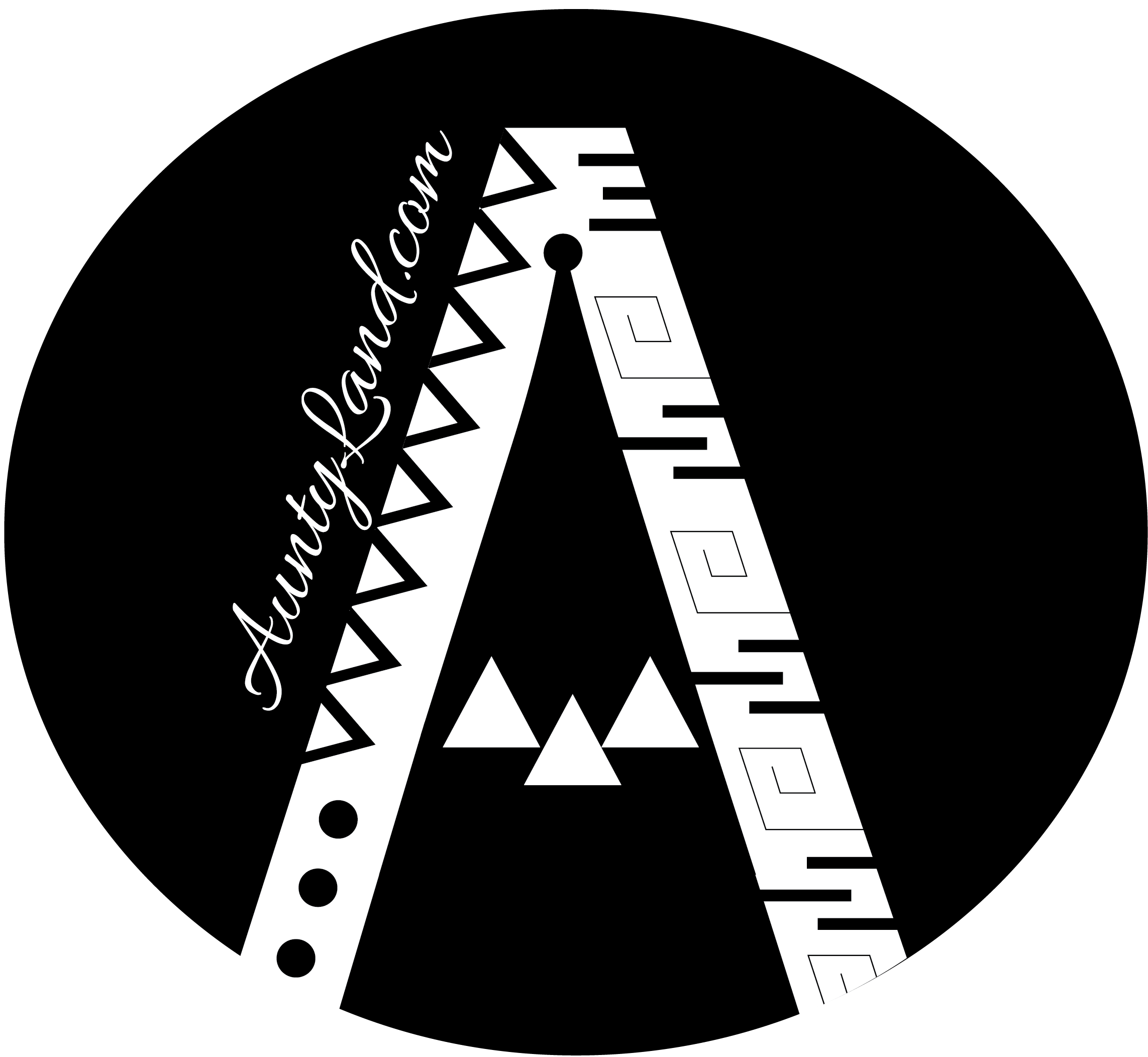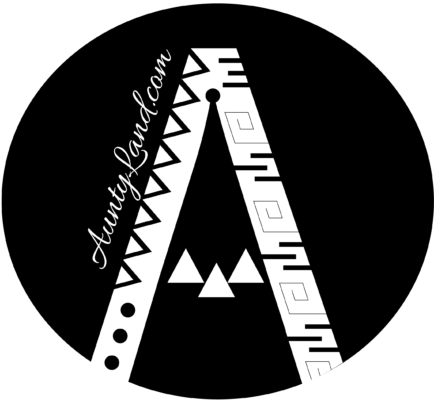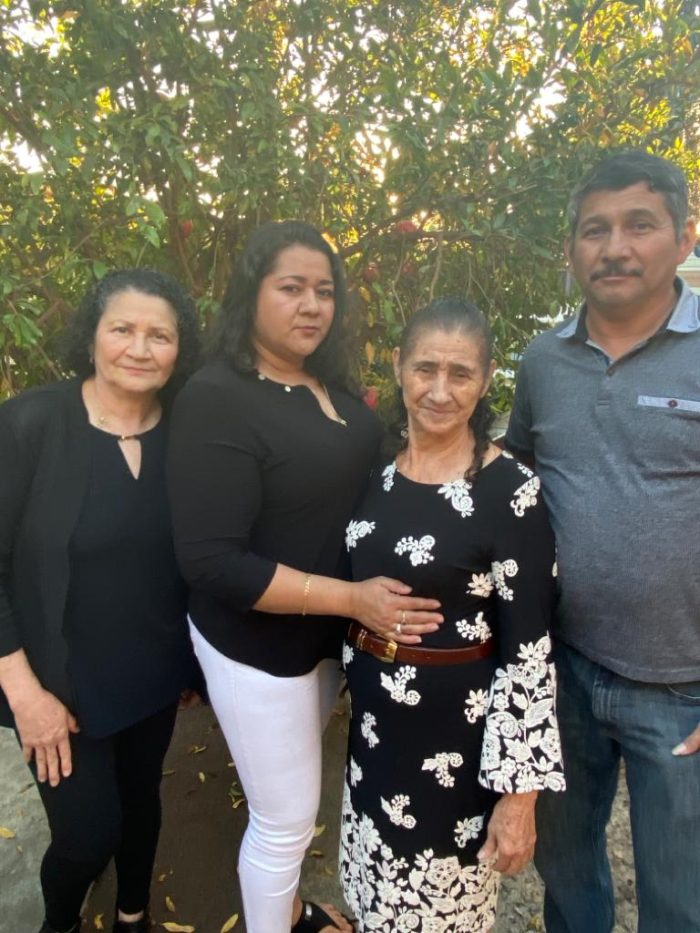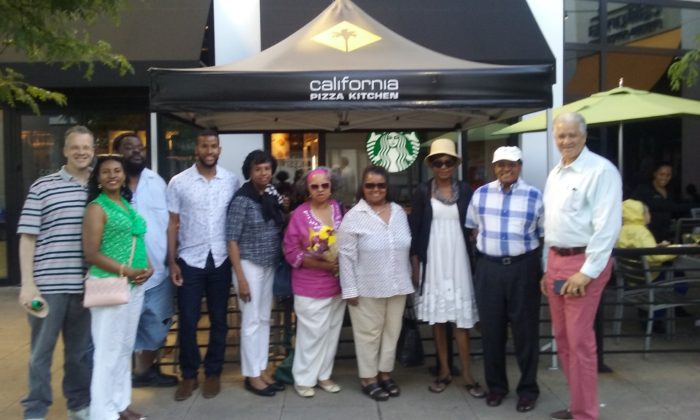If someone asked me how many aunts I have, I probably wouldn’t get the number right—there are just so many of them. After consulting with my mom, however, I have confirmed that I have eight aunts in total. Four are my mom’s sisters and four are my dad’s sisters. Two are in Los Angeles, CA, one is in Cottage Grove, Oregon, and five are in Santa Ana, El Salvador. Those five I haven’t seen since the last time I visited my parent’s home country, which was in 2010 when I was 12 years old.
Continue reading “My Salvadoran Aunts”Tag: Aunties
Filipino Aunt traditions

By Yansi Murga
Stella Canlas grew up in Quezon City, the Philippines as the eldest of seven children now scattered across the globe. Three siblings are in North America, three in Australia, and one in the Philippines. Growing up, Stella had three aunts on her Dad’s side. However, they lived in the province and she very rarely saw or talked to them, especially because she did not speak their local dialect. On her mother’s side, she had only one uncle, her Tito Baby. But she grew up close to his wife, her Tita Lety, who was also her baptismal ninang or godmother.
Tita Lety
Stella will always hold her Tita Lety close to her heart because, despite having ten children of her own and experiencing financial struggles, she was always kind, welcoming, and generous. Stella explains: “More than the food she would feed me, or the dresses she made for me, she was always a source of strength,” noting the many sacrifices she offered for her children. “Today, 9 of her 10 children are in the USA, a dream that she knew would be fulfilled, a result of sheer tenacity and unwavering faith in God.” Overall, Stella believes her Tita Lety “was quite an inspiration, a reflection of a strong, motivated and kind-hearted woman.”
Stella says that “in a close-knit family, the Filipino aunt is considered the second mother of one’s children” and adds that, “in most cases, parents, in their wills, bequeath their children to their sisters.” Additionally, as roughly 80% of the Philippine population practices Roman Catholicism, the Filipino aunt “is also, more often than not, the baptismal or confirmation godmother of the child.” In this way, the role of the Filipino aunt is often intertwined with the Catholic faith and traditions derived from Catholicism.
Sister-in-law aunts
In her children’s own lives, there is one blood-related aunt, Stella’s sister Rose, but there are also four sister-in-laws, Cecile, Malu, Margarita, and Milagros, who are married to the brothers of Gerry, Stella’s husband. Rose, she says, was and is her children’s favorite tita and was a ninang at her daughter Jen’s wedding. Stella notes: “my children love her unconditionally. She is the epitome of an all-giving, complete aunt.” Her children are also very close to their uncles and aunt-in-law and least one or both of them were principal sponsors for the children’s weddings.
In Filipino weddings, ninangs and ninongs are principal sponsors, or godmothers and godfathers, respectively, who have close relationships to the wedding couple and are chosen by them to be a part of the wedding entourage. They are, of course, chosen to be official witnesses to the wedding, but their participation in the wedding is also symbolic of the support they have given, and will continue to give, to the couple in their marriage.
Ninangs & Ninongs, Wedding Sponsors
Stella’s own children followed the traditional Filipino wedding customs, with, for example, the groom’s family formally asking for the bride’s hand in marriage (the “pamanhikan”). Three out of her four children had traditional Filipino church weddings with both principal and secondary sponsors. The principal sponsors are chosen by the bride and groom and, as Stella’s daughter-in-law, Maia, says, they “tend to be the older AND wiser relatives who helped raise us or played a key role in our childhood formation.” For Stella’s children, the principal sponsors, or ninangs and ninongs, were aunts, uncles, and older friends in the Catholic community that they are all members of. For example, Maia and Geoff chose an aunt who played witness to the beginning of their courtship and an uncle who knew them both from a very young age. They, she says, “continue to be the pillars of guidance, even after 12 years of marriage.”

In these weddings there are also secondary sponsors, usually close friends of the bride and groom. For their own secondary sponsors, Maia and Geoff chose close friends who played a key role in the development of their relationship– “like the friend who knew that romance brewing before we even knew it!” she says. The secondary sponsors participate in the veil, cord, candle, and coin ceremonies and present these tokens to the marrying couple during the nuptial mass.
Deeply symbolic
Each of these tokens is deeply symbolic with, for example, as Maia explains: “the laying of the veil and cord (“yugal“) to symbolize unity and strength, and presenting 13 coins “arrhae” as a symbol of future prosperity throughout the marriage.” Reflecting further on the importance of these objects in the ceremony, Maia says: “though some relatives were unable to physically be present at our wedding, their presence was felt by way of loaning these wedding tokens on our wedding day…and we hope they continue to be handed down in the family for generations to come and keep these traditions alive.”
Aunts are central
Upon being asked what the pivotal role that aunts played in her wedding was, Natasha, Stella’s other daughter-in-law, says: “I think praying for us really. That was and is what our sponsors are to us. Besides being a guide, they would send us anniversary greetings with scriptures/prayers.” Natasha adds: “they’re also of course great role models. Having been a flower[girl] at their own wedding 30+ years ago also serves as an inspiration/encouragement on lasting marriages.” In this way, it is clear that Filipino aunts play an integral role in the upbringing of their nieces and nephews and often continue to do so well into adulthood, as ninangs to them and their spouses. If anyone is interested in learning more about Filipino aunts and family traditions, below are some sources Stella suggests for doing so.
https://theculturetrip.com/asia/philippines/articles/understanding-the-filipino-tita/
http://factsanddetails.com/southeast-asia/Philippines/sub5_6c/entry-3871.html
Dominican-Puerto Rican influences
By Yansi Murga
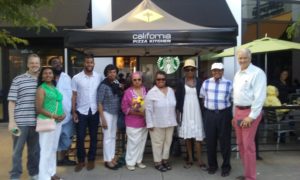
Raquel Vidal is a community volunteer who directs a Queens church pantry that helps hundreds of local residents. The retired communications and advertising executive shared some highlights about aunts.
Vidal, who has a seemingly endless amount of nieces, nephews, and great and great-grand nieces and nephews, says she would rate herself “as a wonderful aunt.” She was born in Puerto Rico and was one of eight siblings, six from her mother and father’s marriage and two from her father’s previous marriage. Her family eventually moved to New York City, where she grew up and lives today. Vidal credits the aunting she practices today to her mother who, despite living far from her own nieces and nephews, “was present in their lives and shared in many of their joys and sorrows.” She would always write, call, and/or send gifts to them on special occasions all the way from the United States to the Dominican Republic, where the majority of her family remained.
Sharing her mother’s oral history
As her mother was the only one of her siblings to migrate to the United States, Vidal grew up far away from her family in the Dominican Republic. The extent of the memories and interactions that she has with them is through oral history presented to her by her mother. Supplementing these oral histories are the trips she had a chance to take to the Dominican Republic as a teen and adult, as well as her mother’s little grey memory box with treasured family photographs. At the NYC dinner table, her mother would perform what was the ceremony of recounting the memorable stories behind every photo, a tradition continued by Vidal and her sister Sara after their mother’s passing.
Becoming an aunt
Since becoming an aunt herself, Vidal does as her mother did with her. She shares foundational family history with her nieces and nephews. The Vidal sisters never married or had children of their own. So, they were always the aunts who were available for everyone. Sara, she says, was “the keeper of the flame of oral history.” Unlike her, Auntie Sara could spend hours on the phone telling family stories to her nieces and nephews, something Vidal misses dearly since her sister’s passing. Still, Vidal— or Auntie Raquel— often assumes this role because she believes that family history holds value in the lives of her nieces and nephews today.
Black Puerto Rican heritage
So what pieces of family history did they pass on? Well, as much as they could. Vidal and her sister told their nieces and nephews about their grandfather who was born in 1901 in Puerto Rico and was the eldest of three brothers. About his mother, their great grandmother, who was born in 1868, not long after the emancipation of enslaved Black people in the United States. She was a very motivated woman and worked hard cleaning the homes of wealthy people in order to give her son the opportunity to go to college. Which is exactly what he did. He was a college graduate— a feat that was unheard of at the time for a Black Puerto Rican like him. He was the only one in his family who went beyond a high school education, later became a professor, and even attended seminary school to become a minister and missionary.
Dominican heritage
They also told their nieces and nephews about their maternal grandmother who was one of six children born and raised in the Dominican Republic during the dictatorship of Rafael Trujillo. About the brother who was killed in the military when he was in his early twenties and the deep trauma it caused her. About how later she left home at the age of 18 to become a Seventh-day Adventist— also unheard of at the time for a young, unmarried woman with a strict Catholic upbringing. About how, at the age of 26, she met the man that would soon become her husband, and much later would become their grandfather. “Every step of the line has a story all its own”, Vidal says. “Every branch of the family tree has so much to say and, unless you tell [oral history], people will be deprived of something that could be foundational in their lives.” Oral history, she believes, is educational; “it allows them to form a foundation in their own lives out of something that existed before.”
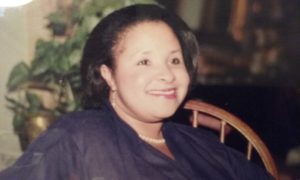
Intentional memory creation
Equally as important in her aunting practices is the act of intentional memory creation—something that can become what she calls “a sibling rivalry of sorts, but of service.” She explains that “doing something with Auntie Raquel, whether it is sharing a holiday meal, going on a school break vacation, or doing something for [my niece or nephew] has an aura all its own. I have the opportunity to out-do and out-serve my siblings.”
‘Camp Auntie Raquel’
She recounts, for example, that when her nephews were younger, their mother would put them in day camps over the summer. One year, they were asked what summer camp did he want to attend and her nephew Daniel said he wanted to go to ‘Camp Auntie Raquel.’ “They still talk about that today!” she says. “None of my siblings can claim that beautiful piece of Daniel’s history. It becomes part of your individual connection.” She concludes, “there’s room for this sibling rivalry when everyone is working together to create wholesome nephews and nieces.”
Teaching about Nelson Mandela
Raquel remembers when she and her sister Sara took their 5-year-old nephew Andrew to a Nelson Mandela rally. To this day, her nephew remembers a Jamaican, Reggae song that was playing out of a car when they were leaving the event: “Stand Up, Stand Up, Stand Up for Your Rights! Stand up, Stand Up, Don’t Give Up the Fight.” This, she says, “is in his memory because we intentionally went there so it could be in his memory, so he could learn who Nelson Mandela was. That this is important and being a part of it is important.” These kinds of intentional memories—the kind that will last a lifetime, both theirs and hers— are the kind that she treasures and strives to instill in as many nieces and nephews as she can.
Show love
All in all, Vidal says that of primary importance in her role as an aunt is demonstrating love and individuality and “creating the belief and conviction in each of [her nieces and nephews] that they are special in their own specific way.” Lastly, she says “Vidal aunts are special aunts because we love, we care, we show up. We are what we do, so we are always doing something!”—and it is pretty clear that Auntie Raquel loves what she does.
Nigerian Auntie Reflections
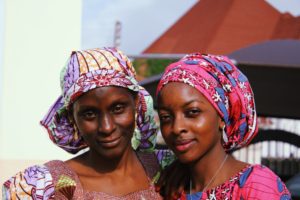
These reflections refer to my Igbo Nigerian culture and the strength of its matrilineal societies. I invite you to explore: Chinua Achebe’s Things Fall Apart (charting the effects of British/Western colonialism in southeastern Nigeria); and Wole Soyinka’s Aké: The Years of Childhood (outlining Soyinka’s childhood in Nigeria pre-and post-WWII. For a Yoruba, perspective starts with Florence Nwapa’s This is Lagos and Other Stories, an anthology describing universal problems shared by Nigerians and women around the world. The specific Biafran War within Nigeria (integral to Igbo history) read Chinua Achebe’s There Was a Country; and Alfred Obiora Uzokwe’s Surviving in Biafra: The Story of the Nigerian Civil War: Over Two Million Died. For understanding matrilineal societies, read Chimamanda Ngozi Adichie’s Half of a Yellow Sun, and Ifi Amadiume’s Male Daughters, Female Husbands: Gender and Sex in an African Society.
My Igbo Matrilineal Culture
“Beloved, the past is our strength.” This phrase is my motto. It is my mantra, a literary representation of my approach to life. My name is Amy Azubuike. My first name, Amy, a diminutive of “Amelia” and originating from the name “Aimée” in Old French, often translates to ‘beloved’ in its meaning. And, my last name, “Azubuike” roughly translates to “the past is our strength” in Igbo, one of the prominent languages in the southeastern region of Nigeria. My lineage has breathed life into me, and my purpose and connection to living were pre-determined at my birth. I am loved, I am beloved, and the past is my strength. However, how does my past strengthen me? Where is that strength shown?
Source of Strength
As I continue to shift paths in my life, I’ve found that the aunts in my life have served as one fundamental source of strength for me. The first major death of my formative life was that of my aunty–my godmother, my second mother, my confidant. She passed away from sickness not long after my 16th birthday in the winter of my junior year, when my most serious concerns were SAT testing, college applications, and maintaining my GPA. I had thought to visit her the weekend before she passed. But since my SAT was that weekend, I postponed it. That lack of proper closure had haunted me for months afterward.
Painful losses
The following year, I lost multiple loved ones, and the same came true for the year after that. I’ve found myself debating the intrinsic nature of the process of coping as, in 2020, I’ve found myself plopped into another one of those years with many deaths and little relief. As more loved ones transcend into the afterlife, I’ve found that her life almost models a coda within the movement that is my own life. Her imprint and her life lessons are forever illuminating to me.
My Aunty Onyinye
In my life, Aunty Onyinye was my dance partner. I felt out of step with life. Not only did I not tune into the latest dance crazes that enraptured children like me at that age (Azonto, the Cat Daddy, and Shoki come to mind). But I similarly felt disconnected from life in general. I didn’t find comfort in a lot of the same sources of joy that my classmates did. With the exception of some television shows, I couldn’t focus on current events. Try as my mother did, coming-of-age phases to teenage girlhood such as makeup, care for fashion, and certain (traditionally) womanly rules of etiquette, all flew past me. Yet, somehow, my aunt found ways to introduce these ideas to me by meeting me at my level. She didn’t brute force her suggestions into my psyche. Nor did she shy away when I didn’t accept them immediately.
Teaching me my culture
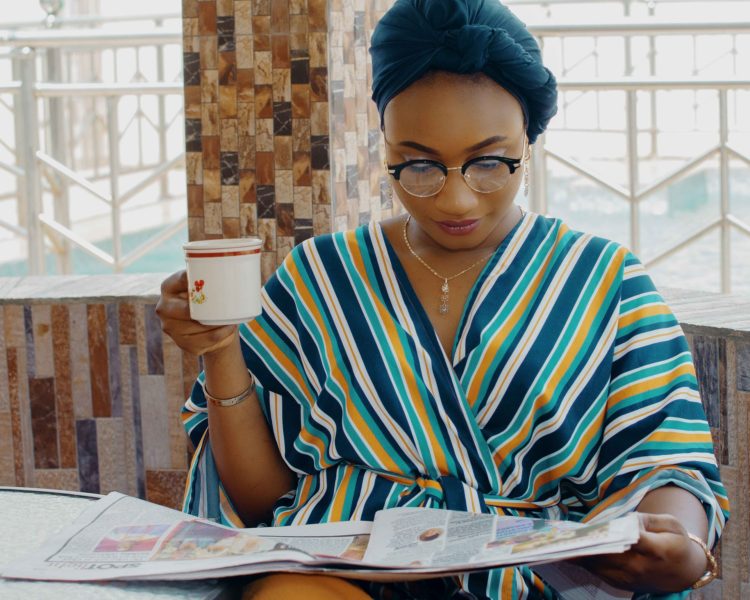
When she asked if I’d heard of the Azonto and found my blank stare, she tried to encourage me by looking up Youtube videos and miming some of the dance movements but lived and let alone if I wasn’t receptive, instead of bringing up my interests for the next time.
This is the Azonto video my Aunty Onyinye showed me, nearly 8 years ago. Of course, I was amazed by her level of knowledge concerning popular youth dances, considering she was a member of my mother’s generation — the children born into post-Independence Nigeria, enduring the aftereffects of colonization which were constructed from suppression tactics–embedded within white supremacy–and were so pervasive on the Motherland. In spite of the weight of that history, she found the need, the energy, to dance, a lifeline so embedded within so many Black cultures.
Afrobeat music, dance
She loved dancing to traditional “Afrobeat” music, a term coined and genre pioneered by Fela Kuti, the famous Nigerian multi-instrumentalist composer, political activist, and general counter-cultural Pan-Africanist icon.
According to my mother, this was one of my Aunty Onyinye’s favorite Flavour songs! Aunty Oninye tapped her feet to Davido, sang along to Flavour, and gyrated her hips to the peaks and echoes of both King (Dr.) Chief Oliver D’Coque’s highlife guitar and Chief Steven Osita Osadebe. While slowly aiding my mother in easing me into my adolescence, she showed me the social power of dancing in bringing together people across ages, cultures, and mindsets. To this day, I owe my love of rhythm to my mother and to my aunt.
Balancing grief
After her passing, I found myself grasping for that same level of balance that she provided for me in life. I found that the difficulties of that time period–most of which, I rather not divulge in this piece, but do want to emphasize reframed my understanding of upheaval and struggle up till that point–seemed to pile on, without one of the few people who knew exactly the mindset to take to approach them all. Again, I was not only out of step with life, but life had propelled me away from my element. However, within that process of coming back to myself these last few years, I’ve found that processing her passing has opened me up to a lot of reflections on and making peace with a lot of the harrowing experiences of that time. She inspires so many of these reflections–partially due to the fact that for every death, I’ve experienced in the last few years, she’s the only loved one whose funeral I was ‘fortunate enough to attend and subsequently weave into my journey of closure. I’ve always believed that there is great significance in that fact, considering she is my godmother: truly, my second mother, and she treated me like a child of her own.
My North Star
My aunts, altogether, combine into my North Star. They anchor the constellations of memories and experiences that I search for, from those who’ve passed on, in tough times. That I search for, to find a way to celebrate the good moments alone with them somehow. Others may relegate Aunty Onyinye solely to my past, but she is so much more a horizon, acting as a reminder of my present and a motivator for my future. She is such a living essence within my life, but the past specifically binds us. Though still, she is such a core element of that past. She represents so much of my strength. Just because an individual is no longer living, doesn’t mean they’re no longer present or are irrevocably cast to the past. And, just because a spirit or soul is no longer material, doesn’t mean it’s not ‘living’. Ancestral connections and presences showcase the importance of the diffusion that exists between past and present, present and future, past and future, and so forth. My aunt has played such a vital role in not only revealing these temporal relationships to me on their own but also by strengthening them within me in so many specific, life-altering ways. This relationship with my Aunty Onyinye is unique to me, and processing her passing even more so, but it just so represents the impact of aunts in Black lives and within my specific ancestral culture, where the entity of the ‘aunt’ serves as a manifestation of the roles in tradition and in ancestral cultural history that Black women hold. While my Aunty Onyinye symbolically represents so much of my ancestral connection to my culture and my ties to tradition, there are many other concrete ways that aunts express these roles. Tapping into the wisdom of my mother, she shared with me that “aunts are the wheels that turn the family.” Their opinions and overall say matters significantly in terms of keeping the family stable.
Regarding wives
Within Igbo culture in Nigeria, in my mom’s specific tribe, aunts settle crucial decisions in the family; for example, the aunt offers her opinion regarding wives since, as my mother says, “you want your family tree to be without blemish.” Within my mother’s family, and therefore my family by extension, aunts ensure that the women married into the family are hard-working, morally upright, and come from good, ‘respectable’ families. That last criterion is vital; great emphasis is placed on making sure that the wife-to-be’s family has not been cursed by the gods, or that no abomination exists within their lineage. Within just this area of marriage charting, aunts assume their roles in governing the past and the future, particularly in one’s familial past and engineering the hope for a positive familial future. Culturally, aunts hold great respect within their positioning. Their word is bond.
Family gatekeepers
As the gatekeepers of the family, they advise the men of the family in a lot of family matters, and the men usually listen to those suggestions. If there’s an issue you need help with, they are your problem solvers–I’ve found my Aunty Onyinye to fully embody this role within Igbo culture multiple times. Most importantly, they preserve the veneer of the family, making sure that no member brings shame to the family unit. They especially play a key role in shepherding young girls in the family, guaranteeing they’ve not led astray and prepared them for marriage. Within these roles, aunts provide a unique dosage of objectivity and familiarity to their youth, of somehow balancing proper distance and separation alongside their involvement, all in manners that biological mothers and fathers cannot replicate as easily. And even then, aunts present as de facto mothers for so many of us, too.
Non-biological, chosen mothers, aunts
In some cases, children are named after certain women, or the title of ‘mom’ is associated with a woman besides their non-biological mother. Because of a particular woman’s character or standing, one might assign their child her namesake in order to encourage that woman to take responsibility for that child, tending to their welfare as the child develops. Aunts hold various roles in the family unit, molding themselves into whatever need is present at the moment; it is a very malleable, and therefore difficult, role to fill and often decides the tone of the family. The role of the aunt fully exhibits the principle of ‘It Takes a Village’ that is prevalent in so many non-Western cultures, are markers of multiple Black cultures, and is particularly a key within different African cultures including different Nigerian subcultures as well. The gravitas of the role of the aunt within a culture can be inferred from Igbo culture in general customs, as well.
Calling everyone ‘Aunt’ or ‘Uncle’
One custom that always warms my welcome, whenever I visit Nigeria, is the social norm of calling everyone that appears older than you ‘Aunt’ or ‘Uncle’. It doesn’t matter that they may be strangers; in fact, strangers are often called ‘Aunt’ in greeting, even if you’ve never met before, or you’re just passing by each other on the road!
